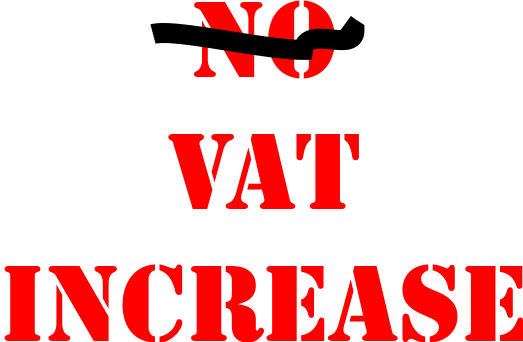What will be the effect of an increase in VAT?
Bob Tallent
The Synergy Group
17th November 2011
 As I have said in the article ‘opportunity or threat’, the leaked document 'Ireland: memorandum of economic and financial policies' reveals that the government is to raise the top vat rate when Minister for Finance Michael Noonan presents the budget on 6th December next. Michael Noonan has not confirmed this as of yet because he has said that decisions have not been made yet.
As I have said in the article ‘opportunity or threat’, the leaked document 'Ireland: memorandum of economic and financial policies' reveals that the government is to raise the top vat rate when Minister for Finance Michael Noonan presents the budget on 6th December next. Michael Noonan has not confirmed this as of yet because he has said that decisions have not been made yet.
However, according to a document presented to the budget committee of the German lower house of parliament yesterday (Wednesday 16th), Ireland will raise the top rate of value-added tax (VAT) to 23%, generating an additional €670 million.
According to the leaked memorandum "After successive budgets in which income tax burdens were raised significantly, we have decided to focus on indirect tax increases to deliver the bulk of the 1 billion euros additional tax effort required in 2012 ...
"To this end, the VAT rate is being raised by 2 percentage points to 23%, which will generate 0.67 billion euros."
"I don't know how anybody could have a document like that. The government hasn't decided its budget yet," said Labour Party Leader Eamon Gilmore speaking to reporters.
The document lays out a plan for a further 100 million euros to be raised through a reform of capital gains taxation while around 160 million euros will be generated by a previously announced household charge. The remainder in fresh revenue will be raised through increases in other forms of indirect taxation.
Social welfare is targeted for the further €1.45 billion savings and it said reforming entitlements, reducing unemployment traps and improving the targeting of social supports would account for cuts to social welfare.
Another change to the updated memorandum shows that the government is to fund the struggling credit union sector to the tune of €250 million by the end of the year.
The updated memorandum of understanding between Ireland and its creditors, which presented to Germany's budget committee ahead of publication, said a broadening of the personal income tax base would form part of the 2013 budget. The memorandum also states that the government may substitute another measure for the proposed change to income taxes in consultation with its EU, European Central Bank (ECB) and International Monetary Fund (IMF) "troika" of lenders.
Since the government has received the €85 billion bailout nearly a year ago under the FF government, it has so far passed all of its bailout reviews. Even allowing for this, the troika has said that significant risks remain.
"The growth outlook could deteriorate significantly in the months ahead, if Ireland's main trading partners do slide into a recession," the document said. "This would complicate the authorities' consolidation effort markedly."
Bank losses may also be higher than expected due to continuing weaknesses in the property market and higher-than-expected unemployment, and a risk of consolidation fatigue setting in, especially if private sector involvement in other countries is seen as a "quicker" and less painful way to address the high debt problem.
This all could mean continued tightness by the banks, continued or renewed lack of public confidence therefore less cash flowing in the retail sector. And less cash flowing in the retail sector bounces down through all sectors. With one exception! Those who are supplying the retail sector with POS material stand to gain handsomely, so long as they get their 4P’s correct. Equipment suppliers may have to find innovative ways of helping their customers to fund the machinery.

















